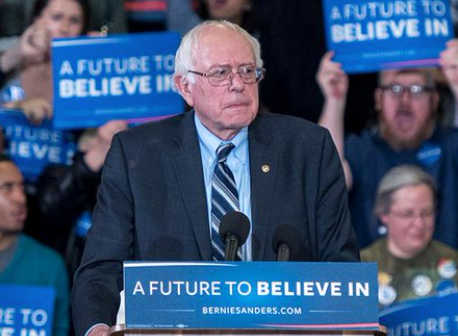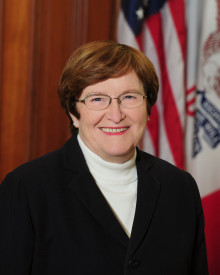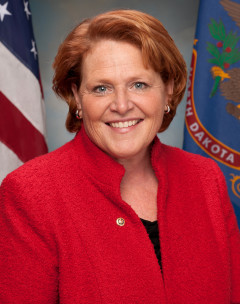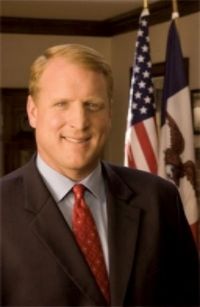Bleeding Heartland welcomes guest posts on state legislative races. Great to see a candidate stepping up in this district. Democrats failed to field a challenger against Heaton in 2012 or 2014. By the way, some Iowa politics junkies have Heaton on retirement watch. -promoted by desmoinesdem
Carrie Duncan is running for State Representative in House District 84 against eleven-term incumbent Dave Heaton (R-Mount Pleasant), as a Democrat. With the controversy surrounding the potential closure of a mental health facility in Mount Pleasant. Carrie felt the need to run against Representative Heaton, feeling that he was not a strong enough of a voice against the Branstad Administration’s plans to close the facility.
Carrie’s support for organized labor is fierce and deep. She is a proud member of the International Association of Machinists and Aerospace Workers (IAMAW), Chief Steward, Local 1010 She works at the American Ordinance LLC in Middletown. Carrie’s son, Zach also works at American Ordinance LLC. Zach lives with his wife Randee, in Mount Pleasant. Carrie has also worked at Pioneer Corn and Pinnacle Foods. She resides in New London.
Carrie got into this race as a voice for the middle class and the poor in the state of Iowa. She believes that the state government is simply giving too much away, using tax breaks to procure agreements with big corporations while not doing enough to educate our children. The unemployment rate is too high in District 84; this means that we need leaders in Des Moines that are regularly communicating with small businesses instead of constantly trying to lure extremely large companies, many times hiring out of state labor to fill the positions.
Carrie has worked in the New London School District as well; she has gained knowledge about the issues that our educators face daily. She has worked in some different industries, always fighting for fair wages and equal treatment for all in the workplace. She currently serves as the Vice President of the North Lee County Labor Council.
She is also hoping to see an end to the Governor’s plan to privatize Medicaid, and wants to see a more transparent process when large economic development agreements come to the area.
District 84 encompasses portions of Northern Lee County, Henry County, and Jefferson/Washington townships. [note from desmoinesdem: A map is after the jump, along with the latest voter registration numbers.]
Carrie is originally from Chillicothe, Illinois and she grew up on a family farm. She has a lifetime appreciation for our state’s local ag producers. Carrie is involved in a number of terrific charitable organizations in Southeast Iowa, as well.
For more information go here:
http://kilj.com/2016/01/news/carrie-duncan-announces-run-for-state-representative-in-washington-henry-jefferson-and-lee-counties/
Continue Reading...

















